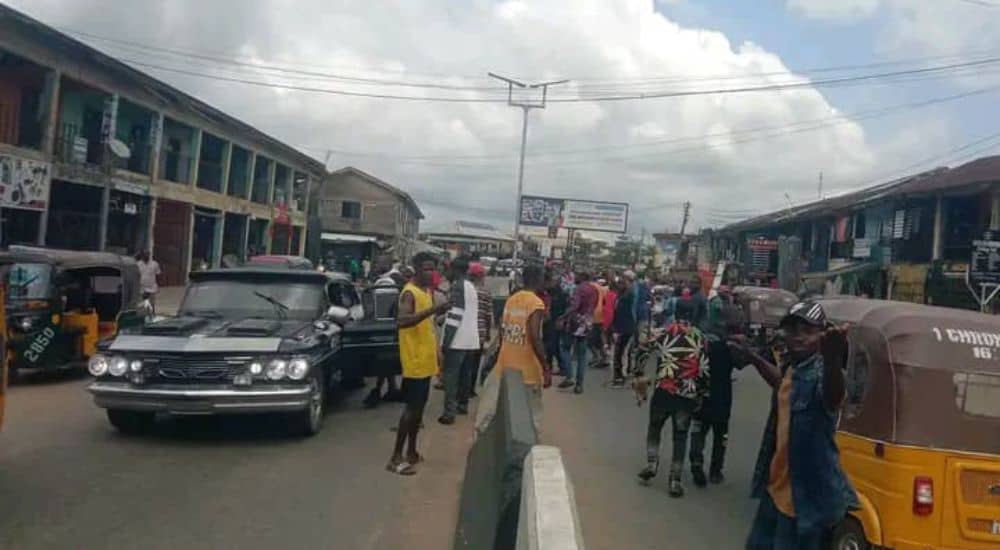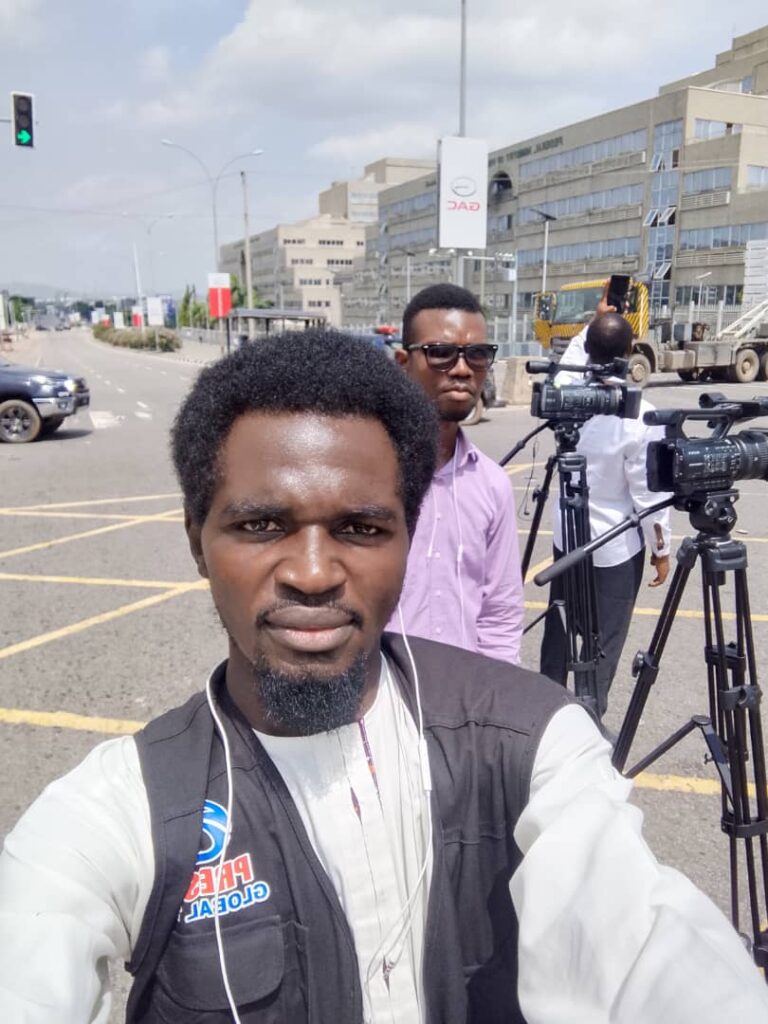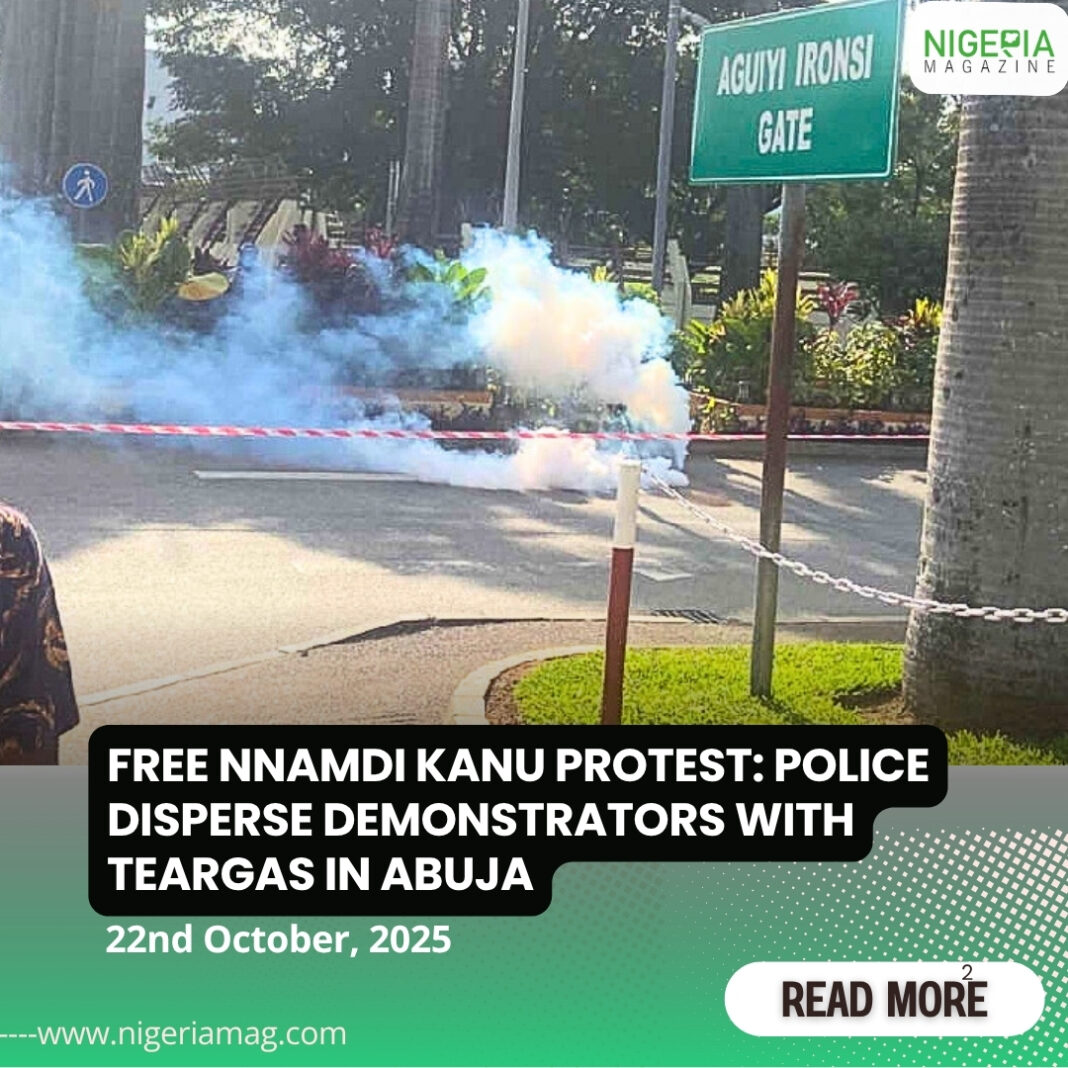By Ubong Usoro
Tension gripped the Federal Capital Territory on Monday as security operatives moved in to disperse protesters demanding the release of the detained leader of the Indigenous People of Biafra (IPOB), Nnamdi Kanu.
The demonstration, led by human rights activist Omoyele Sowore, drew scores of participants who gathered at the Federal Secretariat before marching toward the Transcorp Hilton Hotel, carrying banners and placards with inscriptions such as “Free Nnamdi Kanu Now” and “Justice for Biafra.”

According to on-the-ground reports, the protesters began assembling early in the morning. Sowore addressed the crowd, stating that Kanu’s detention symbolised broader social injustice in Nigeria. “The continued detention of Nnamdi Kanu without fair trial is a violation of fundamental human rights,” he reportedly said.
Despite repeated warnings from security operatives, the group pressed on. Police officers subsequently deployed tear gas canisters to disperse the protesters. The sudden escalation caused chaos, forcing demonstrators to scatter, while vehicular movement in surrounding areas was temporarily halted.
Security personnel present included officers of the Nigeria Police Force, the Nigeria Security and Civil Defence Corps, and other government security agencies. Some journalists covering the protest were affected by the tear gas, and several protesters were temporarily detained.

Police officials, who spoke off the record, said the demonstration was unlawful and violated a court injunction restricting gatherings in sensitive government areas. They insisted that the deployment of tear gas was necessary to maintain law and order.
Nnamdi Kanu, a British-Nigerian citizen, has been in custody of the Department of State Services (DSS) since 2021 after being re-arrested abroad and returned to Nigeria. His prolonged detention, despite several court rulings ordering his release, has fueled agitation and demonstrations, particularly in the South-East region.
The protest comes amid rising tensions over perceived injustices in the country and highlights the challenges surrounding the exercise of constitutional rights to peaceful assembly. Organisers have indicated that advocacy for Kanu’s release will continue through lawful means.
The incident has disrupted normal activities in Abuja’s Central Business District and drawn attention to the security challenges in handling politically sensitive demonstrations.
Monday’s crackdown marks a new escalation in the ongoing standoff over Kanu’s detention and underscores the fragile nature of public protests in Nigeria, particularly around politically charged issues.
Ubong Usoro for Nigeria Magazine


